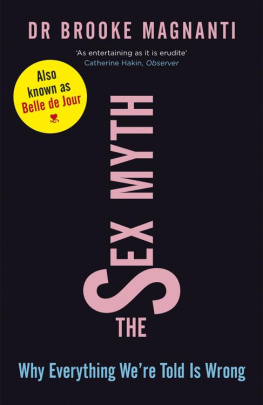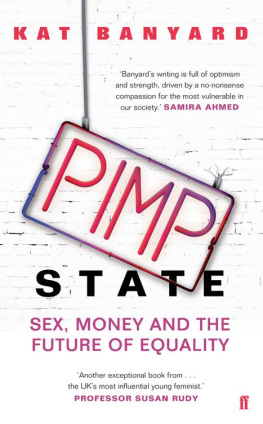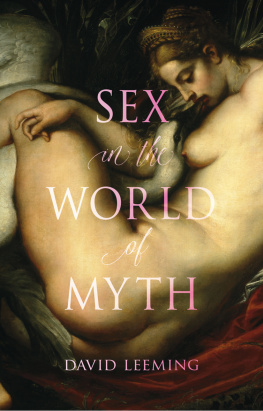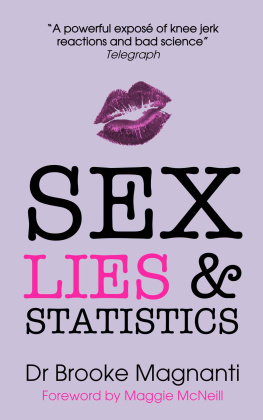
Contents
Myth: When it comes to sexual attraction, men are visually stimulated and always interested in sex and women arent.
Myth: Sex addiction is a real psychological disorder, and its on the increase.
Myth: Modern culture encourages early sexualisation of children, leads to more sexual activity among teens, and promotes violence against women.
Myth: When adult businesses move into a city, the occurrence of rape and sexual assault goes up.
Myth: Pornography objectifies women, and the industry that produces it abuses them.
Myth: The availability of adult content on the internet is materially different from that of any other media, and more dangerous.
Myth: Tens of thousands of women are trafficked into Britain as sex slaves.
Myth: Restricting and banning prostitution stops people from exchanging sex for money.
Myth: The people who oppose sex work, pornography, and similar issues are motivated only by what they think is best for society.
Conclusion
Introduction
Men, it has been well said, think in herds; it will be seen that they go mad in herds, while they only recover their senses slowly, and one by one.
Charles Mackay,
Extraordinary Popular Delusions and the Madness of Crowds
S ex is virtually a human universal. Its something most of us can claim, if not expertise, at least an enthusiastic amateur interest.
Plenty of people have opinions about sex, sex work, and sexuality, and why not? When it comes to something of which we have (ahem) hands-on experience, we can all be experts. But sex is a broad topic, the inner workings of which are still somewhat of a mystery to us, no matter how much we practise. Once out of the comfort zone of what we know first hand, all kinds of strange rumours can take hold. And once a rumour starts to spread it can be very hard to stop.
Relying on others for our information about sex and sexuality starts young. I had an early personal lesson in how curiosity and lack of information mix.
When I was eight years old, kids in my year spent a lot of time trying to catch a glimpse of the opposite sex in the nude. The boys may have started it, but we girls were good at outsmarting them.
By the time the summer break came the challenge was at fever pitch. We lived in a small town by the beach and most of us went to the same places together, chaperoned by parents and relatives. A lucky few had older brothers and sisters with cars. The beach turned out to be the perfect place to spy. For one thing the doors of the changing rooms ended a crucial several inches above the ground. In the minds of the girls it was therefore theoretically possible, if we were quiet enough, to win this little war.
Because I was the youngest and smallest in the group (a good three years younger than those in the same class at school, and shorter than average with it), the job of official eye was given to me. What I quickly discovered was that the couple of inches between the floor and the bottom of the changing-room doors didnt allow me to see anything of interest. The angles were all wrong. At most I might glimpse a part of someones foot, but only if they were standing close to the gap. Otherwise all I could see was the tiled floor of the boys changing area.
Weeks passed and the speculation about what the boys were hiding grew more elaborate. Clearly we were just as motivated as they were to find out what the opposite sex was up to, but who knew how it would end?
One morning a girl called Tanya finished the war for good. She said there was a hole in the door of the boys changing room and she had seen what they looked like naked. We gathered round, ready to receive all the gory details. But as for secondary sources, well, those didnt exist. We would have to take her word for it.
According to Tanya, the male member was long, with a spiral ridge running down it a lot like a screw, in fact. Curiously satisfied by this explanation, we forgot about the challenge and went back to enjoying the beach for the rest of the summer. We could now all say with confidence what boys looked like naked without having to actually, you know, see one. No one gave the details of the story a second thought even though they didnt make much sense. After all, if there was a hole in the door of the changing room, why did no one else know about it? Wouldnt the boys have realised someone was spying on them? Wasnt it odd that the shape she described a screw just happened to coincide with a popular euphemism for having sex?
As the teenage years progressed, similar gossip fires raged through school every year. The stories passed between girls became more sophisticated and corrected a lot of the faults in Tanyas information. But we werent only interested in naked people any more. The gossip was more often about who was doing what with whom. And, of course, the juicy parts always happened at times and in places where no one could prove otherwise. There was a notebook reserved especially for recording our gossip and speculations. It was passed around during French and RE. We didnt question the authority of the notebook. If it was written, it was true, no matter how unlikely the event or whose reputation was smashed because of it. We were at the age when we couldnt get enough of thinking and talking about sex.
From the first rumours in the schoolyard to the first fumblings in the dark, has there ever been a topic more talked about, thought about, and argued about? We begin to learn about sex and sexuality from the things we tell each other, and later from our own experiences.
As we get older and gain more insight, our gaze widens: from when will I have sex? What will it be like? How are other people doing it? to broader questions of sexual orientation, relationships, and gender issues. Were fascinated with the periphery of sex as well as the nuts and bolts of it. Stories about prostitution, porn, and sex crimes are guaranteed to get news coverage, magazine features, and column inches in the papers. Memoirs, exposs, and kiss-and-tells fly off the shelves. We get our expertise however we can.
But the less direct experience we have, the more we turn back to gathering knowledge the old-fashioned way. The schoolyard way. I know someone who knows someone... once again becomes a believable source of information.
For example, it was once easy for people to believe second-hand stories and rumours about homosexuality, because most people didnt know anyone who was out. As homosexuality became more open and more visible, and therefore more people knew that they knew gay people, the malicious rumours and hatred began to wane. According to polls by the Washington Post and ABC News, the percentage of people supporting equal marriage rights for gay couples has risen in direct proportion with the acceptance and visibility of gay people. Nasty prejudices and damaging assumptions have been vanquished by the plain light of day.
Other groups, however, who are not yet as accepted can still experience the full brunt of the rumour mills attacks. Because a lot of us dont personally know anyone in sex work, old stereotypes continue to hold sway in that area. Without direct knowledge, whos to say otherwise? Who dares put their hand up first to challenge what most people believe to be true?
What is clear is that we need some way of telling what is real from what is myth.
Luckily, there is just such an approach that can help sort the truth from the fiction. The methods of scientific inquiry, which describe researchers discoveries about the physical world, are a useful template for finding out what is true and what is false in the realm of human society and sexuality.
Next page






